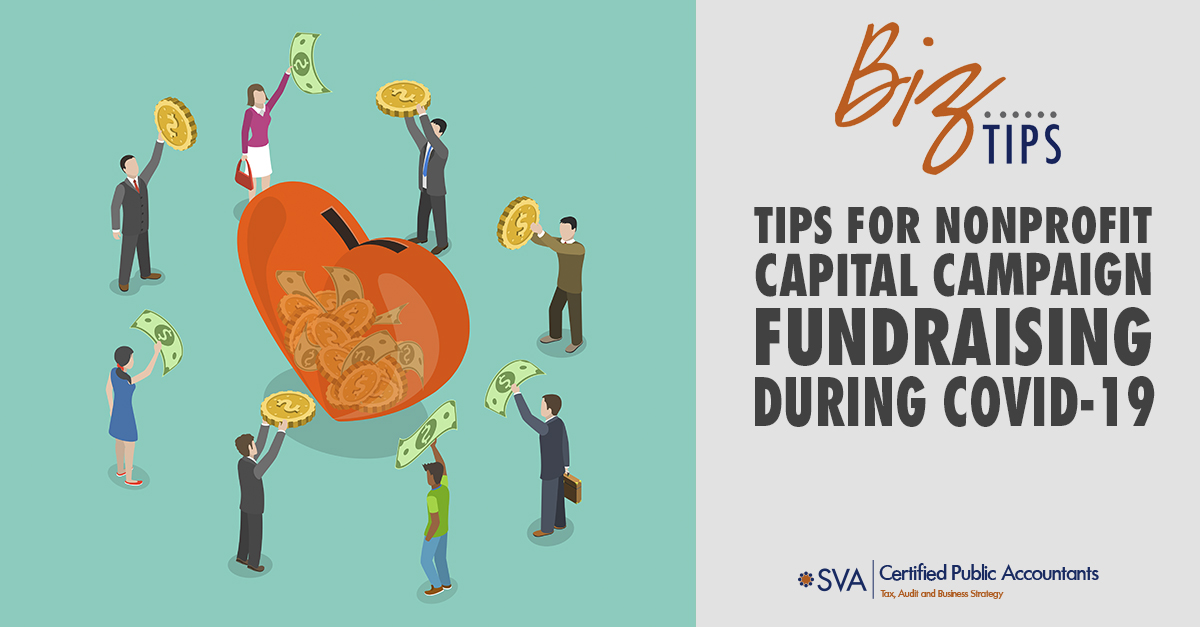As the pandemic stretches on, many nonprofit organizations are wondering whether to begin or continue a capital campaign.
As you decide how best to execute your organization’s mission during these uncertain times, you and your board must determine whether it makes sense to undertake capital expenditures on new buildings, facilities, programs and major equipment.
Depending on what phase your capital campaign is in, you may want to step back or alter your approach. The following tips should help you decide the best course of action to take as you make decisions:
- Begin by assessing whether the need driving your capital campaign continues to be relevant in the current environment. You don’t want your campaign to seem out of touch with the needs of your constituents and donors. For example, a drive to add an athletic facility at a private school would not be viewed as important as making sure all students have laptops and internet access for remote learning.
- Many donors have shifted their focus and funding to health and human services during COVID-19. If your campaign focuses on less critical needs, you may wish to re-evaluate your campaign or change your strategy.
- Carefully review the current status of your campaign and the milestones you’ve achieved. For example, if your campaign focuses on the construction of a facility, it may be wise to delay construction or re-evaluate the need for the building.
- The information you gathered from your campaign’s feasibility study may no longer be valid. Given the current climate, you may need to conduct another study and alter your target list of major donor prospects.
- If you decide to continue with your campaign, develop a status report for donors to reinforce your organization’s commitment to the campaign’s long-term objectives and goals.
- If your campaign is in the “silent” phase, where 50% to 70% of major donations are pledged before the campaign becomes public, you’ll need to gain recommitments from your major funders. Meet virtually with donors and discuss whether they foresee suspending their pledges or working out a multi-year pledge period.
- As you engage in these virtual one-on-one discussions with major donors, share how your organization is navigating COVID-19 and how it may (or may not) alter your organization’s campaign.
- Engage in conversations with your major donors on how they are coping with the pandemic and actively listen to their concerns. Although the stock market was strong in the first half of 2020, other areas of the economy, such as certain real estate sectors, have weakened. Some donors may have more difficulty meeting their pledges in the planned timeframe, so adjustments may be needed.
- If you decide it’s best to slow down the campaign, be prepared to provide major donors with your reasons for this decision. For example, you may determine it’s not the right time to conduct this particular campaign, or you may need to re-assign staff to other priorities during the COVID-19 crisis.
- Before going public with your capital campaign, consider whether your goal resonates with the current social and economic environment. It may be better to continue soliciting major donations quietly and defer a public kickoff until a later date.
Regardless of what phase your campaign is in, it’s important to build and strengthen trust with your major donors. By keeping the lines of communication open and demonstrating empathy and consideration during these difficult times, you can retain donor interest and keep your capital campaign goals in focus.
If you have questions or need assistance with your nonprofit please contact SVA.

© 2020 CPAContentPlus

